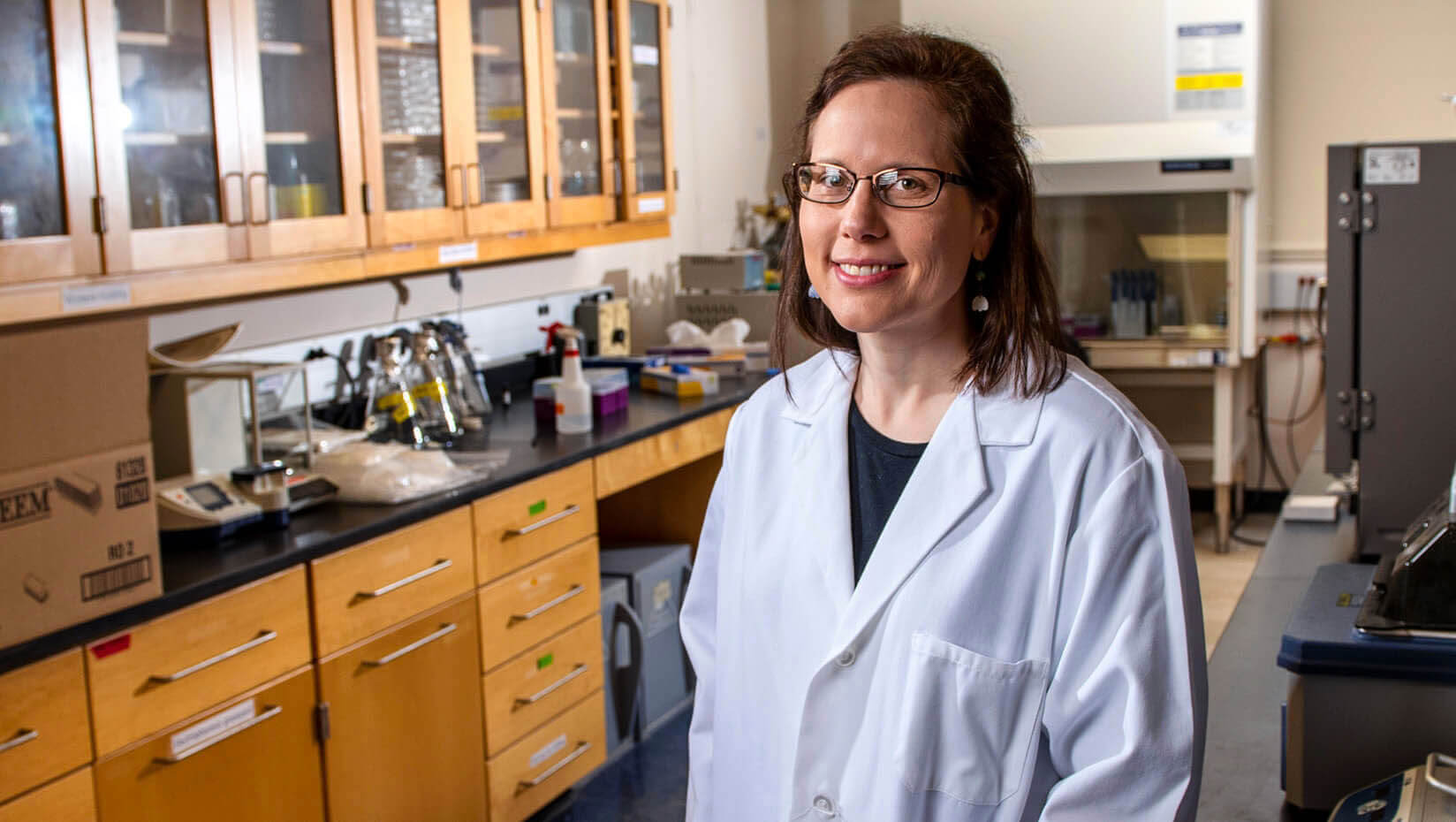
Gosse leads NIH-funded study into how CPC inhibits immune cell function
Investigating how a common antibacterial ingredient in many foods, personal care, and cleaning products inhibits immune cell function that is harmful to human health is the focus of a National Institutes of Health-funded study at the University of Maine.
In a recent study co-authored by toxicologist Julie Gosse, a UMaine associate professor of biochemistry, her team found that low doses of cetylpyridinium chloride (CPC) hinder the functionality of mast cells, which assist with immunity and other physiological functions. Personal care and janitorial products with CPC typically contain high doses of the agent. Conversely, she and her colleagues say CPC could help fight influenza, and discovered that the agent reduces zebrafish mortality by the illness, particularly through disrupting hemagglutinin clusters linked to it.
The study, co-led by physics Ph.D. student Prakash Raut and biochemistry student Sasha Weller, is one of the first to investigate the effects of CPC on immune cell operations. It was published in the journal Toxicology and Applied Pharmacology.
In her latest investigation, funded by a $426,405 NIH award, Gosse aims to pinpoint the mechanisms CPC uses to influence immune cell function using various biochemical, biophysical and molecular tools, including super-resolution fluorescence microscopy. Other researchers involved in the project include Samuel Hess, a UMaine professor of physics, and Juyoung Shim, an assistant professor biology at the University of Maine at Augusta. Gosse will also enlist Ph.D student Bright Obeng, undergraduates Emily Ledue and Patrick Fleming, and other students.
“Very little is known about CPC’s effects on eukaryotes and human health, despite widespread exposure,” Gosse says. “The results of this study will fulfill an urgent need by providing insights into the impact of CPC on public health, and will point to either pharmacological uses for or toxic impacts of this ubiquitous chemical.”
In 2020, Gosse capped a decade of research into the medical harm caused by another germ-fighting agent: triclosan (TCS).
The agent was previously found in a variety of household products — at one point 75% of Americans were exposed to it. Studies from Gosse and other scientists, however, revealed that TCS weakens disease resistance and interferes with various bodily functions, and it inspired a public outcry that caused its removal from almost all products. Gosse, in particular, discovered that TCS inhibits T and mast cells, and damages mitochondria.
“This NIH grant will provide funds for toxicology research in support of public health, to strengthen undergraduate and graduate research training at UMaine and to prepare workers for the scientific workforce,” Gosse says.
Contact: Marcus Wolf, 207.581.3721; marcus.wolf@maine.edu
